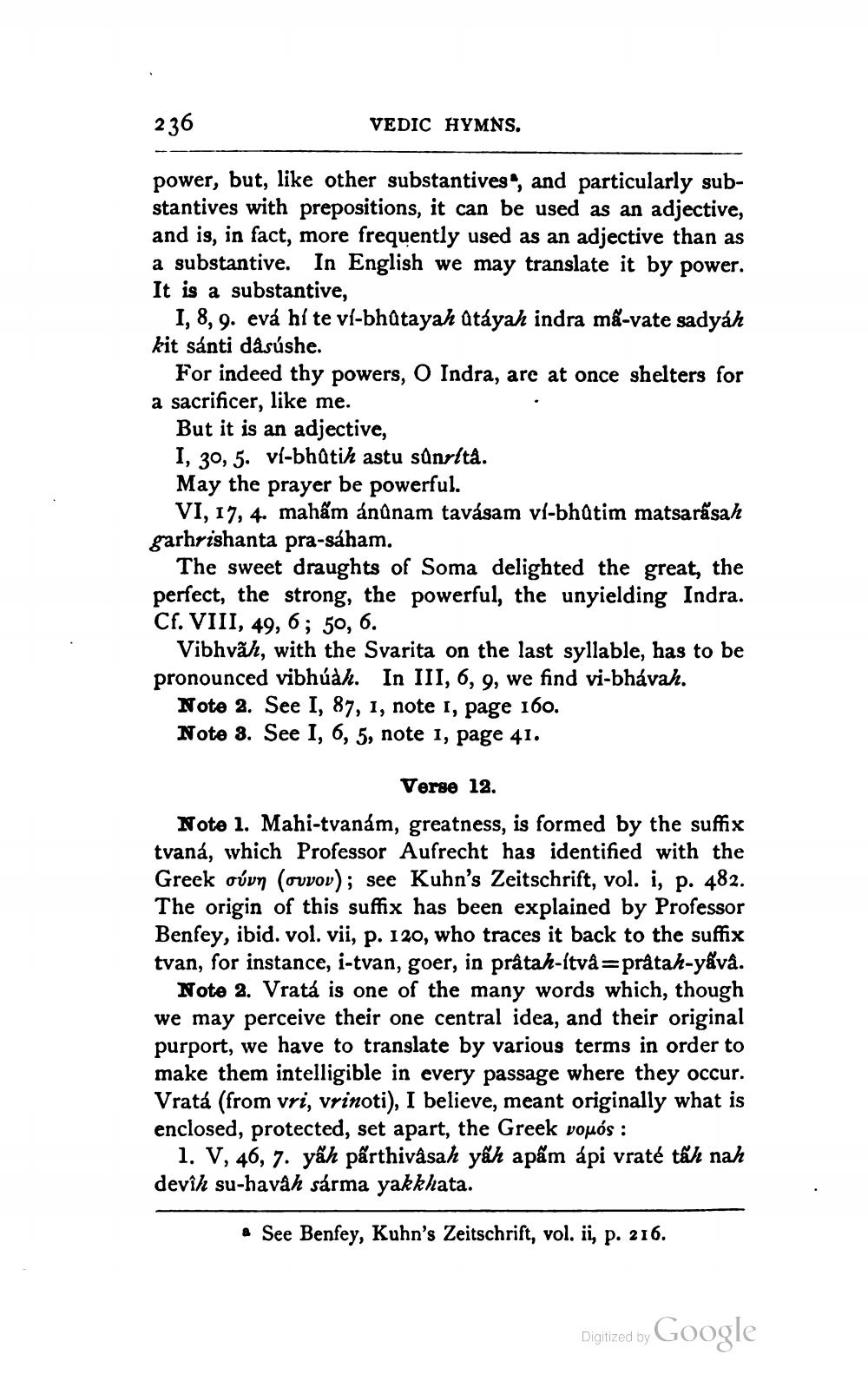________________
236
VEDIC HYMNS.
power, but, like other substantives", and particularly substantives with prepositions, it can be used as an adjective, and is, in fact, more frequently used as an adjective than as a substantive. In English we may translate it by power. It is a substantive,
1, 8, 9. evá hí te vi-bhatayah atayah indra må-vate sadyah kit sánti dåsúshe.
For indeed thy powers, O Indra, are at once shelters for a sacrificer, like me.
But it is an adjective, 1, 30, 5. vi-bhatih astu sunrltà. May the prayer be powerful.
VI, 17, 4. mahấm ánûnam tavásam vi-bhatim matsarasah garhrishanta pra-sáham.
The sweet draughts of Soma delighted the great, the perfect, the strong, the powerful, the unyielding Indra. Cf. VIII, 49, 6; 50, 6.
Vibhvăh, with the Svarita on the last syllable, has to be pronounced vibhúàh. In III, 6, 9, we find vi-bhávah.
Note 2. See I, 87, 1, note 1, page 160. Note 8. See I, 6, 5, note 1, page 41.
Verse 12. Note 1. Mahi-tvanám, greatness, is formed by the suffix tvaná, which Professor Aufrecht has identified with the Greek cúvn (ovvov); see Kuhn's Zeitschrift, vol. I, p. 482. The origin of this suffix has been explained by Professor Benfey, ibid. vol. vii, p. 120, who traces it back to the suffix tvan, for instance, i-tvan, goer, in prâtah-ítvå=pråtah-yava.
Note 2. Vrata is one of the many words which, though we may perceive their one central idea, and their original purport, we have to translate by various terms in order to make them intelligible in every passage where they occur. Vratá (from vri, vrinoti), I believe, meant originally what is enclosed, protected, set apart, the Greek vouós :
1. V, 46, 7. yah pârthivâsah yah apấm ápi vraté tấh nah devih su-havâh sárma yakkhata.
* See Benfey, Kuhn's Zeitschrift, vol. ii, p. 216.
Digitized by
Digized by Google




